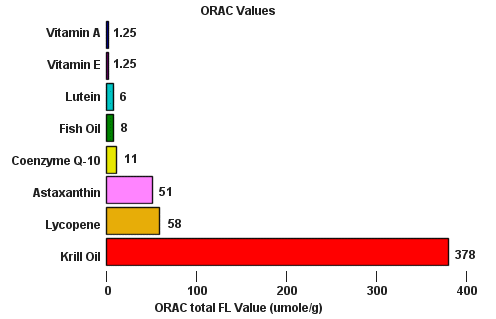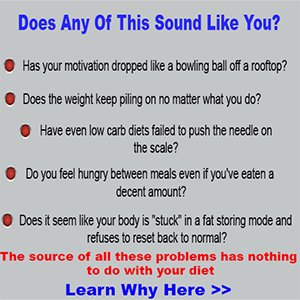The Differences Between Fish Oil and Krill Oil That May Just Save Your Life
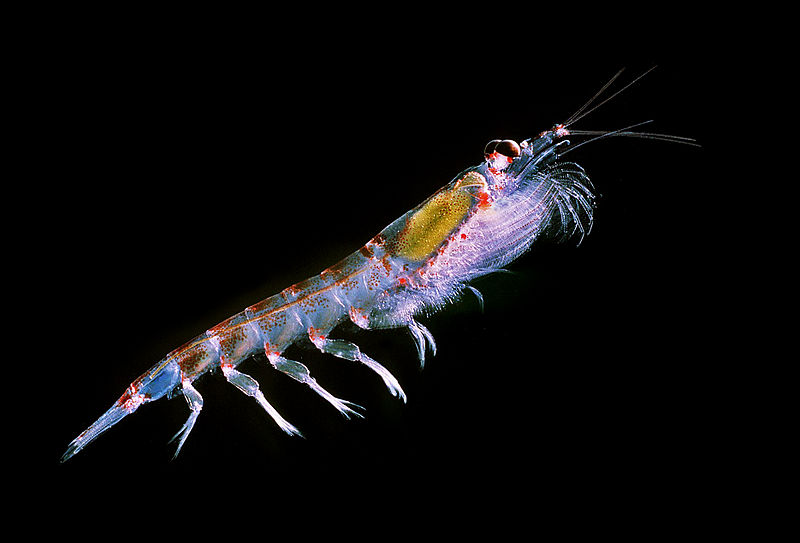 There is a rather large debate in the healthcare industry on which oil is better: Fish oil or Krill Oil.
There is a rather large debate in the healthcare industry on which oil is better: Fish oil or Krill Oil.
Although both fats have been shown to improve your overall health, only one of them can be the clear winner.
In our opinion, that would be Krill oil.
Now, why would we say this? Haven’t both types (fish and Krill) been shown to reduce your “bad” cholesterol and raise your “good” kind?
Haven’t both been shown to lower inflammation, therefore improve heart health?
The answer to this is yes, they both have. But Krill oil may be vastly superior to fish oil.
The reasons: 1) it may be better absorbed by the body, 2) even with a lower dose, your body may be able to absorb MORE DHA and EPA from Krill oil compared to fish oil, 3) Krill oil also contains a powerful antioxidant – called Astaxanthin – that could lead to lower inflammation levels, and 4) Krill oil may actually boost your fat loss.
And that’s not all…
The research on Krill Oil – although in its infancy – is showing some pretty fantastic health benefits!
Now, before we get into the benefits, we also want you to discover the stark differences between Krill oil and fish oil…
Differences between Krill and Fish Oil
To preface this section, I want to tell you that many pages could be written regarding the stark differences between Krill oil and fish oil.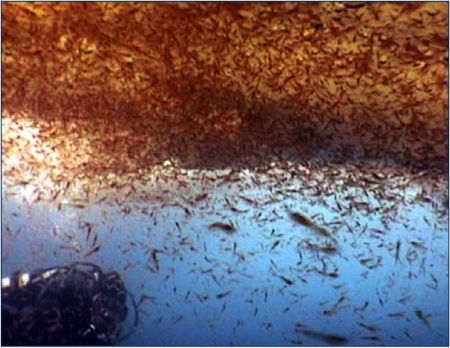
However, for time purposes, we will try to condense the information - 1) for time and 2) to make it as simple to understand as possible.
Let’s start with the chemical makeup. Both fish oil and krill oil contain the omega-3 fatty acids, DHA and EPA.
However, these specialized fats are held together in a different structure in the two oils.
In fish oil, the omega-3 fats are bound by a triglyceride backbone. This means that in order to free the omega-3’s, the fats have to go through an extra conversion step in the liver to break the backbone and bind those fats to a phospholipid.
Krill oil, on the other hand, is already bound by a phospholipid backbone, meaning once it is digested, the fatty acids may be able to skip that extra process in the liver.
The next difference is absorbability of the omega-3 fats. If you have noticed, fish oil contains a lot of omega-3 fatty acids (usually upwards of 1000 to 2000 mg) where Krill oil has a lower amount comparatively.
How are the lower levels better?
Well, once broken down, studies show that a lot of the omega-3 fats from fish oil are excreted by the body.
But in Krill oil, the absorption rate is much higher (22 percent free EPA and 21 percent free DHA) in Krill oil compared to fish oil.
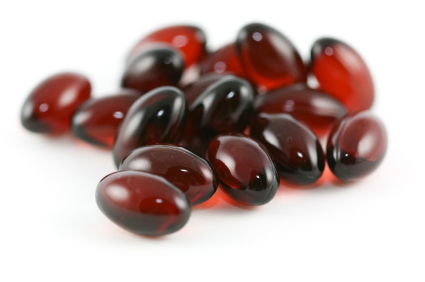 One study mentioned that krill oil contained 62.8 percent LESS DHA and EPA, however, the levels of free fatty acids made them more effective and powerful compared to the fatty acids in fish oil.
One study mentioned that krill oil contained 62.8 percent LESS DHA and EPA, however, the levels of free fatty acids made them more effective and powerful compared to the fatty acids in fish oil.
Pretty impressive, right?
Now that you understand just how powerful krill oil is, let’s take a look at what it may be able to do in your body – starting with inflammation.
Krill Oil vs. Inflammation
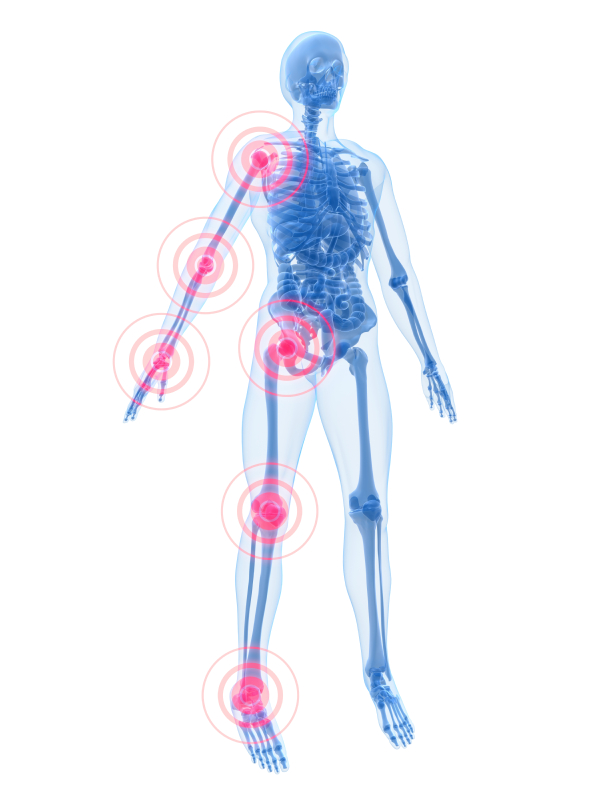 If you have some sort of inflammation in your body, then there could be damage to a number of different cells in your body.
If you have some sort of inflammation in your body, then there could be damage to a number of different cells in your body.
This type of inflammation is considered chronic inflammation and usually goes unnoticed for many years.
Chronic inflammation may be the first step in the development of chronic diseases – such as heart disease, diabetes, cancer, and many others.
That’s why doctors routinely recommend you lower your inflammation levels in order to improve your health.
Now, most conventional ways would be to include more antioxidant –rich foods, or foods that contain a ton of vitamins and minerals.
But let me tell you something about Krill oil:
Studies show that Krill Oil – due to the high levels of vitamins and antioxidants (like Astaxanthin) may be 47 x more POWERFUL than your conventional fish oil product, due to the high ORAC value found in krill oil (see graphic below):
Click The Image To Learn More About The Benefits Of Astaxanthin
Now, Krill oil has also been linked to boosting your overall fat loss results!
Take a look…
Krill Oil and Fat Loss
Everyone – and I mean EVERYONE – has a little bit of fat that they want to lose.
It could be unsightly belly fat…
The stubborn love handles…
Or even the fat that covers your butt, hips, and thighs!
No matter what it is – or how old you are – everyone is looking to get into better shape, lose some fat, and be in overall better health for the rest of their life.
Well, I have great news!
The omega-3 fats – the same ones found in Krill Oil – may boost your fat loss, therefore leaving you feeling a little bit on the lighter side.
You see, a recent study published in the British Journal of Nutrition showed that those on a low-calorie diet, with a high-quality omega-3 fatty acid supplement (like Krill Oil for example), led to 6.87 kg in only FOUR weeks.
And at the end of 10 weeks, those in the omega-3 groups lost an additional 1.69 kgs! That means a total of just over EIGHT kgs in only 10 weeks (for those looking for pounds, 8 kg is the same as 16 pounds).
But that’s not the best part:
Those taking the omega-3 fatty acid supplement showed LOWER BODY FAT LEVELS when compared to the placebo group!
Here are 17 Foods Packed With The Omega—3 Fatty Acids, DHA and EPA
Now, I want to share something scary with you…
Toxins and Pollutants
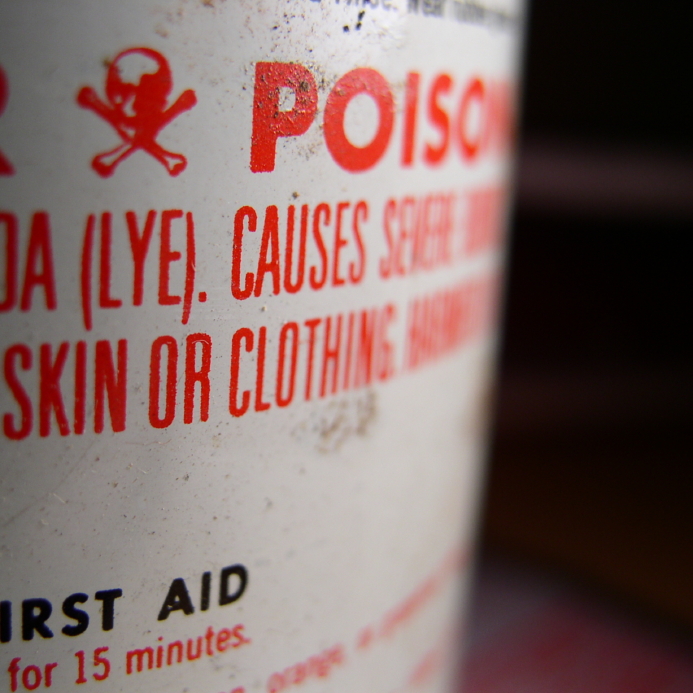 As you know, toxins and pollutants are extremely bad for your health. Too much exposure could lead to disease – even death.
As you know, toxins and pollutants are extremely bad for your health. Too much exposure could lead to disease – even death.
However, what people don’t understand is that the fish oil YOU’RE currently taking, may be loaded with toxins and pollutants.
You see, depending on the age of the fish, the fish could have eaten and absorbed toxins and pollutants.
And here’s the scariest thing: some fish oil products have been taken off the market due to high levels of PCBs, mercury, and other pollutants found in the fish oil.
Now Krill oil, on the other hand, may be less likely to get high levels of toxins in their flesh and oil.
Why? The reason is simple: Krill are at the bottom of the food chain, meaning they are typically the type of fish eaten by large animals such as fish, whales, and other marine life.
Unlike fish oil – which are usually farmed – may swim in feces-infested waters, and may contain mercury, and other pollutants.
No wonder why most fish oil products may contain high levels of toxins.
Plus, Krill are mainly found and harvested off the coast of Antarctica, where the waters are pristine and contain hardly any toxins.
This combination (first eaten and fresh, pristine waters) may make it very unlikely to contain high levels of toxins or pollutants.
The Wrap Up
If you’re looking for one of the best oils around to improve many aspects of your health – including eye, brain, and heart health – then you should look no further than ultra-potent Krill Oil.
This specialized oil may contain up to 22 percent more free EPA and 21 percent more free DHA, which could make these fats more powerful once they enter into the body.
And once inside the body, that’s where they may be able to do their magic!
Studies show omega-3 fatty acids may improve everything from cholesterol and triglyceride levels to enabling you to burn more fat in the long run.
So, if you’re looking for the right fat for your health, then consider using 100% PURE Antarctic Krill Oil – the #1 oil (in our esteemed opinion) that may boost your overall health.
References:
Ulven, SM. Kirkhus, B. Lamqlait, A. Basu, S. Elind, E. Haider, T. Berge, K. Vik, H. Pedersen, JL. Metabolic effects of krill oil are essentially similar to those of fish oil but at a lower dose of EPA and DHA in healthy volunteers. Lipids. 2010. Vol. 46(1): pp. 37-46.
Ferramosca, A. Conte, L. Zara, V. A krill oil supplemented diet reduces the activities of the mitochondrial tricarboxylate carrier and of the cytosolic lipogenic enzymes in rats. Journal of Animal Physiology and Animal Nutrition. 2011. doi: 10.1111/j.1439-0396.2011.01135.x.
Simopoulos, A.P. The Importance of the Ratio of omega6/omega3 essential fatty acids. Biomedicine & Pharmacotherapy. October 2002. Vol. 56(8); pp. 365-379.
Simopoulos, A.P. Purslane: a terrestrial source of Omega-3 fatty acids. N. Engl. J. Med. 1986. 315:383.
Simopoulos, A.P. Omega-3 Fatty Acids and Antioxidants in Edible Wild Plants. Biol. Res. 2004. Vol. 37(2); pp. 263-277.
Schuchardt JP, Schneider I, Meyer H, Neubronner J, von Schacky C, Hahn A. Incorporation of EPA and DHA into plasma phospholipids in response to different omega-3 fatty acid formulations – a comparative bioavailability study of fish oil vs. krill oil. Lipids Health Dis. 2011 Aug;10:145.
Salem N, Kuratko CN. A reeaxamination of krill oil bioavailability studies. Lipids in Health and Disease. 2014;13:137.
About Jayson Hunter & Jaylab Pro

Jaylab Pro was founded by Registered Dietitian Jayson Hunter. Jayson has been recognized as one of America's foremost weight loss experts by America's Premier Experts™. He has also been featured in USA Today for this accomplishment. Jayson is also a best-selling author having co-authored multiple books in health & fitness and business growth. Jayson and the Jaylab Pro team are proud to create content that helps improve the lives of millions of people around the world. We hope you enjoy it just as much as others have.
 If you order a JayLabPro SmartShip product or any Combo Package, we will automatically ship you a new supply of the product or products you have ordered every month, starting 30 days after your initial order is shipped, and continuing until you cancel. The credit card you are using today will be billed the lowest available price for those product or products when your order is shipped, but shipping will be FREE. You may log into your customer account or call our customer service department toll-free at 1-888-9GETPRO (1-888-943-8776) between the hours of 8am – 9pm EST Mon-Fri to cancel future shipments, customize the timing of your shipments, or change the credit card used for billing.
If you order a JayLabPro SmartShip product or any Combo Package, we will automatically ship you a new supply of the product or products you have ordered every month, starting 30 days after your initial order is shipped, and continuing until you cancel. The credit card you are using today will be billed the lowest available price for those product or products when your order is shipped, but shipping will be FREE. You may log into your customer account or call our customer service department toll-free at 1-888-9GETPRO (1-888-943-8776) between the hours of 8am – 9pm EST Mon-Fri to cancel future shipments, customize the timing of your shipments, or change the credit card used for billing.




